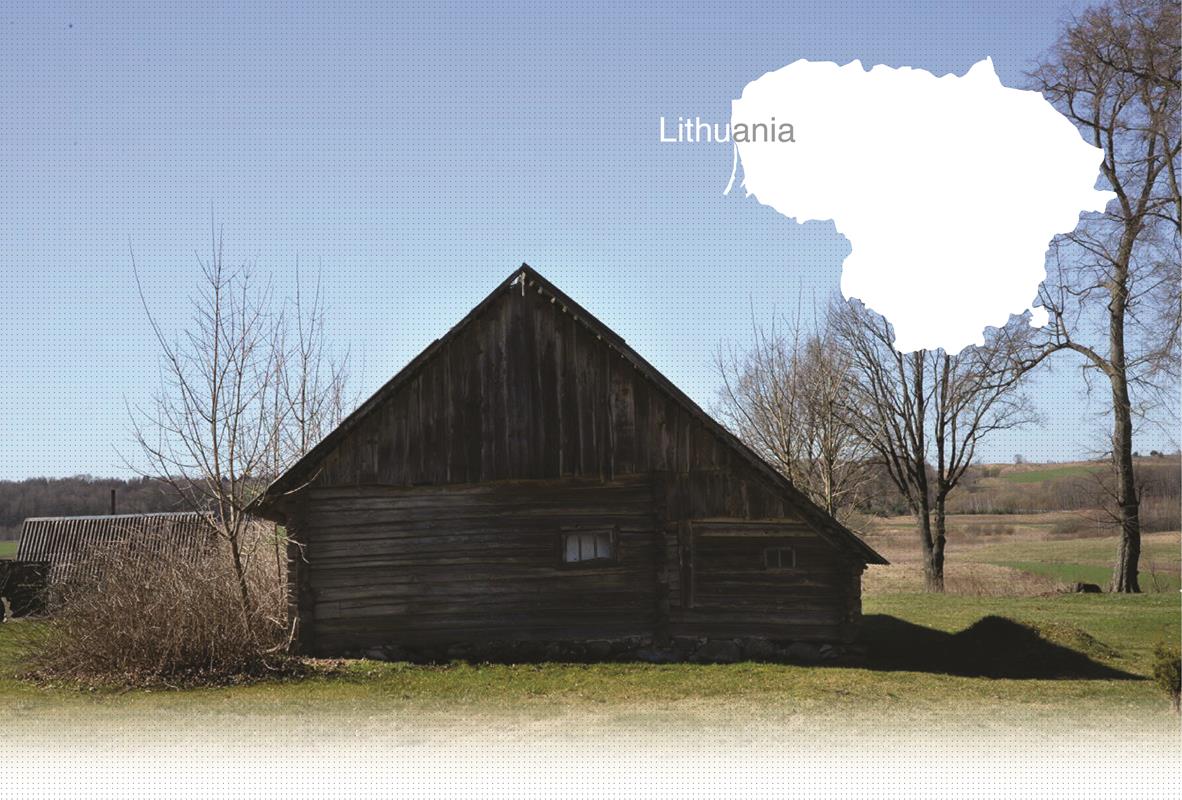

1 Killing site(s)
Maria K., born in 1927: " The Jews of Zarasai were taken by white armbands to the forest near the village of Degučiai to be murdered. Several local people, including my uncle, were requisitioned to carry the Jews unable to walk, such as children and the elderly, and their belongings in their carts. I went to the execution site with my grandmother. Once we arrived, we hid in the shack some fifty meters from the site, from where we watched the execution. All the Jews were gathered in the area surrounded by a barbed-wire fence, from where, group by group, they were taken to the pre-dug pit, lined up on its edge and shot. It all, there were two pits, the big one and the small one. I can still remember the cries of the Jews begging for their children to be spared." (Testimony N°YIU392LT, interviewed in Turmantas, on October 26, 2022)
Zarasai, a small town surrounded by woods and lakes, is situated approximately 48 km (30 mi) northeast of Utena, and about 15 km (9 mi) northeast of Degučiai. The first Jews started to settle in Zarasai at the beginning of the 19th century. According to the 1847 census, conducted by the Russian Empire, the town had 453 Jewish residents. Their number grew rapidly and by 1866, there were already 3,562 Jews living in Zarasai, making up 54% of the total population. Local Jews were primarily engaged in commerce, service sector, and artisanal work, while a large number of them worked the land or made their living by fishing. There were multiple Jewish stores, enterprises and factories in Zarasai. Jewish traders maintained commercial relationships with Poles from the surrounding area, selling them agricultural and manufactured goods, including flax, pig bristles and raw hide. Jewish craftsmen offered their services as tailors, blacksmiths, carpenters, shoemakers and so on. Zarasai was home to a Hebrew elementary school, several prayer houses, a great synagogue, constructed in 1858, a Jewish cemetery and a variety of Jewish institutions and societies, including Zionist parties. Local Jews were highly engaged in the cultural and political life of the town. During the period of Independent Lithuania (1918-1940), many Jews, facing a difficult economic situation, left the town. According to 1923 census, Zarasai counted 1,329 Jewish residents, comprising 35% of the total population. This number slightly increased by 1939, with around 1,500 Jews recorded as living in Zarasai. When Lithuania was annexed by the Soviet Union in 1940, the economic situation deteriorated as nationalization of the Jewish shops and enterprises led to a shortage of goods and rising prices. Several local families, including Jewish ones, were deported to Siberia. When Germany invaded Lithuania on June 22, 1941, and the Red Army troops retreated through Zarasai, numerous Jews tried to evacuate to the interior of the Soviet Union, but many of them were killed on the roads by armed Lithuanians.
Zarasai was occupied by German forces later than some other localities of Lithuania. In the first days of the war, Jewish shops were looted and some Jewish houses were burned down. Some groups of Jews went in hiding in the surrounding area, where they found shelter with local inhabitants. Even before the Germans arrival, Lithuanian activists, the white armbanders, established a local administration and police force. They started to persecute those considered loyal to the Soviet regime, including Lithuanian activists, Jews, disabled people and others. They locked up detainees in the local prison. From the prison, detainees were taken group by group every week to the nearby forest of Magučiai to be murdered and buried in several mass graves. Yahad managed to locate the execution site in the Magučiai forest, where according to some sources, 49 Jews were killed alongside other victims. Other sources indicate another execution site of 27 Jews, murdered in the cemetery of Zarasai. In addition, isolated shootings of the Jews were perpetrated in Zarasai during this period.
On August 26, 1941, the remaining Jews of Zarasai were rounded up in the synagogue (the Catholic churches of Zarasai and Smalvos according to some witnesses) from where they were taken to the forest near the Degučiai village to be executed. Those enable to walk, such as children and the elderly, were transported there by carts driven by requisitioned locals, while others were escorted there on foot under supervision of the guards. The Aktion was conducted by the white armbanders and Germans. The Jews of Zarasai were executed in the Degučiai forest alongside other Jews from the surrounding area, including those from Dusetos and Turmantas. According to German archives, 2,567 Jews were killed on that day, while other sources indicate that the total number of victims was 5,000. After the execution, Jewish belongings were stored in the synagogue of Zarasai and looted by the local population.
For more information about the killing of Jews in Degučiai please follow the corresponding profile.
Do you have additional information regarding a village that you would like to share with Yahad ?
Please contact us at contact@yahadinunum.org
or by calling Yahad – In Unum at +33 (0) 1 53 20 13 17